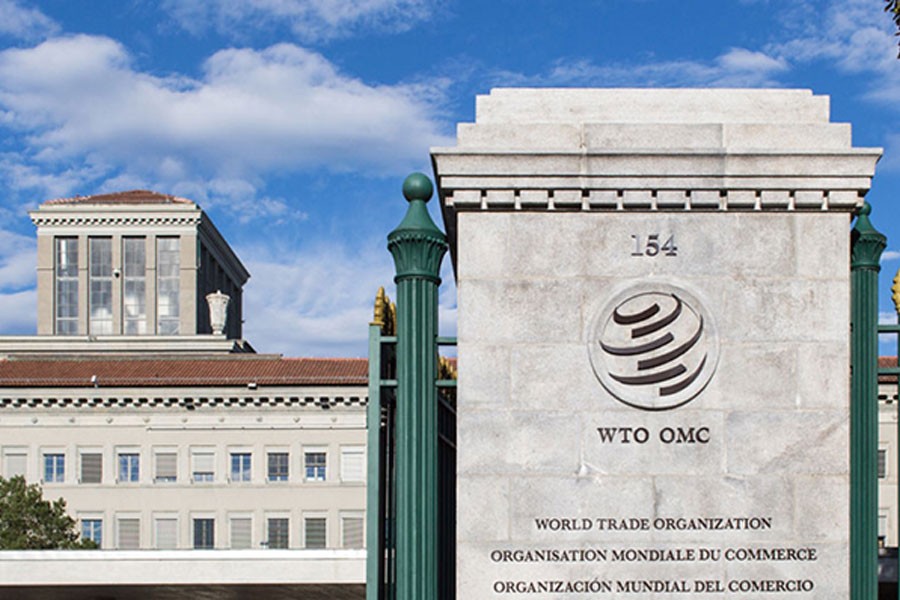The government is scrutinising the merit of filing petition against the imposition of anti-dumping duty (ADD) on some products by four countries with the dispute settlement body of World Trade Organization (WTO), officials said.
India has imposed ADD on import of jute and jute goods and hydrogen peroxide from Bangladesh while Brazil levied duty on export of Bangladeshi jute bags in 1992.
Besides, Pakistan in March 2016 slapped anti-dumping duty on export of hydrogen peroxide by Bangladeshi companies and Turkey has recently imposed it on export of jute fabrics from Bangladesh.
When contacted, Md Hafizur Rahman, director (joint secretary) of WTO Cell, said: "We are scrutinising the move to know the merit of filing petition against the imposition of ADD on some Bangladeshi export items by four countries with the dispute settlement body of WTO."
He, however, declined to give more details in this regard.
Another commerce ministry high official said the ministry is trying to go to the dispute settlement body on jute and jute products. A petition in this regard has already been prepared.
Bangladesh is trying to challenge the four countries for imposing ADD on some of its products by taking issue with the dispute settlement body of WTO, he added.
He also mentioned said the commerce ministry will take necessary steps to prepare the case properly and take it with the WTO after approval from the government's high level. "But it will take time."
The ministry is working to know the pros and cons in this regard.
Prof Mustafizur Rahman, distinguished fellow at the Centre for Policy Dialogue (CPD) said, "We can expect a good result if a strong case can be filed with the WTO."
Bangladesh had raised 17 points with the WTO in the lead acid battery case, he added.
On January 05, 2017, Indian finance ministry imposed ADD for a period of five years on import of jute products from Bangladesh at rates ranging between US$ 19.30 and US$ 351.72 per tonne amid allegations of dumping of goods like jute yarn, twine, jute sacking bags and hessian fabric.
Bangladesh exports more or less 30 per cent of its exportable jute goods to India with BJMC having the largest share. India is the second-largest exporting country for Bangladesh.
A total of 170 jute mills are running under Bangladesh Jute Mills Association (BJMA) while 94 under Bangladesh Jute Spinners Association (BJSA) and 23 under Bangladesh Jute Mills Corporation (BJMC).
Investigation into the anti-dumping is very complex and it requires quality data to be maintained by exporters and technical experts to defend the case, according to officials at the textiles and jute ministry.
They said it would be hardly possible to settle the issue with India bilaterally.
"We had applied for withdrawal of ADD. It has already been rejected," said one of the officials.
"We'll have to put pressure on India and Pakistan. We can take legal action through the WTO," said a senior official at Export Promotion Bureau (EPB).
Bangladesh was also trying to convince the Indian authorities through diplomatic or political channels, arguing that ADD imposed by the neighbouring country had already hit hard Bangladesh's export earnings, according to a BTC source.
Before imposing ADD, the office of Directorate General of Anti-Dumping and Allied Duties (DGAD), India carried out an investigation during the period between April 01, 2014 and March 31, 2015 with injury analysis, covering a period from 2011-12 to the period of investigation.
The country's jute industry is passing a tough time in export of jute and jute goods to neighbouring India, industry insiders said.


